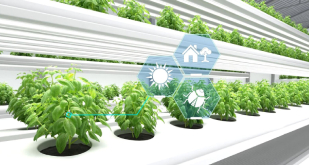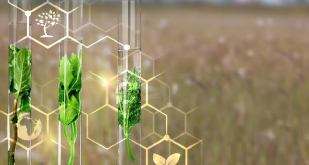Integrated Health & Well-Being:
Predictive, Personalized and Preventivece
One Health unites human, animal, environmental wellbeing. Amrita advances predictive, personalized healthcare with genomics, precision medicine, and digital health for collaborative solutions.


The research aligns with India’s national missions related to healthcare and well- being by focusing on developing advanced and accessible healthcare solutions for rural communities and addressing their specific healthcare needs. It contributes to developing innovative interventions and treatment strategies to enhance healthcare access and outcomes in rural communities. Additionally, the research aligns with national missions on NCD prevention.
Text BoxThe research aligns with the UN Sustainable Development Goals (SDGs), particularly Good Health and Well-Being (SDG 3), by focusing on developing advanced and accessible diagnostic and treatment strategies for non-communicable diseases in rural communities. By addressing specific healthcare needs, it contributes to improving patient outcomes and overall quality of life. Additionally, the research aligns with the use of AI/ML for longitudinal surveillance and community profiling, contributing to SDG 3’s goal of ensuring healthy lives and promoting well-being for all at all ages.

Address antimicrobial resistance (AMR) in communities and hospitals by employing surveillance of patient and water samples, along with behavioral studies, using omics and big data analytics to explore solutions for emerging infectious diseases and phage therapy

Explore One Health approach to address envenomation by synthesizing molecules and generating evidence synthesis, utilizing biosensors and lab-on-chip technologies, complemented by AI and ML to enhance diagnostic and treatment strategies.

Text BoxText BoxExplore the relationship between lifestyle and cancer, promoting holistic health approaches and utilizing liquid biopsy techniques to develop personalized health strategies for cancer prevention and management.

Improve elderly care by integrating rehabilitation with advanced 3D printing for prosthetics and stem cell technologies, focusing on patient-related outcomes and the use of preventive medicines to enhance quality of life.

Address lifestyle diseases through the use of non-pharmacological treatments and Ayurveda, implementing personalized health strategies supported by digital twin technology and generative AI to optimize treatment and prevention plans.

Promote health equity by using econometric modeling and AI/ML/big data analytics to develop policies that support well-being and healthy living.

Improve disease management among the geriatric population through randomized control trials and remote diagnosis and management, utilizing AI and ML technologies to enhance treatment effectiveness and patient care.

Explore cell function in normal and agitated environments, employing machine learning (ML) and artificial intelligence (AI) alongside the use of flextronics to understand and enhance cellular responses under varying conditions.

Text BoxEnhancing women’s health through predictive modeling and patient monitoring systems, using personalized medicine approaches to tailor healthcare to individual needs.

Improve prenatal disease diagnosis by integrating AI, ML, and IoT technologies with applications designed to enhance detection and monitoring during pregnancy.

Develop compassion-based, adaptive, and personalized physician- patient interactions through AI trainers, which provide simulations for communication skills and education for life, enhancing the quality of healthcare.

Ensure dignity in death by integrating compassion science with AI counselors and tutors through human-machine interfaces, enhancing end-of-life care and support

Text BoxFoster compassion and empathy by developing intuitive minds through animation and eye training techniques, complemented by yoga practices to enhance mental and emotional well-being.

Enhance diabetic care by using electrochemical sensing and app-based health services, incorporating precision medicine approaches with a focus on sugar monitoring to improve management and treatment outcomes.

Understand and improve food quality regulation through mixed method research, focusing on fortification and its impact on the gut microbiome.

Address preventable blindness through a diagnostic pathway utilizing mobile phone-based images of eyes, employing AI/ML analysis for screening, and identifying biomarker-based drug targets for intervention.

Integrate healthcare systems using AI and ML technologies, leveraging Electronic Health Records (EHR) for analysis and decision-making, while adopting a One Health approach to encompass human, animal, and environmental factors for comprehensive care.

Early detection of non-communicable diseases in rural communities by implementing longitudinal surveillance and community profiling. It utilizes AI/ML and app-based health solutions for effective monitoring and intervention, ultimately aiming to provide personalized healthcare solutions tailored to the needs of rural populations.
Food Security & Agricultural
Technologies
Addressing global food security challenges, Amrita will develop
sustainable agricultural technologies, explore climate-resilient
crops, and strive for improved food production and distribution
systems.


The research aligns with India’s national missions related to healthcare and well-being by focusing on developing advanced and accessible healthcare solutions for rural communities and addressing the specific healthcare needs of these areas. It contributes to the development of innovative interventions and treatment strategies aimed at enhancing healthcare access and outcomes in rural communities. Additionally, the research aligns with national missions on NCD prevention.
Text BoxThe research aligns with the UN Sustainable Development Goals (SDGs), particularly Good Health and Well-Being (SDG 3), by focusing on the development of advanced and accessible diagnostic and treatment strategies for non-communicable diseases in rural communities. It contributes to improving patient outcomes and overall quality of life by addressing specific healthcare needs. Additionally, the research aligns with the use of AI/ML for longitudinal surveillance and community profiling, contributing to SDG 3’s goal of ensuring healthy lives and promoting well-being for all at all ages.

Chemical farming’s impact addressed through the integration of Indigenous Knowledge Systems (IKS), utilizing biofertilizers and bio- based products, fostering low-budget sustainable farming practices with low emissions and eco-friendliness.

Early detection of plant diseases facilitated by a mobile application empowered with AI, ML, DL, and drone technology, forming a digital agriculture-based decision support system.

Text BoxText BoxAddressing micronutrient deficiency through food and bio-fortification, incorporating prebiotics and probiotics, utilizing biomarkers/biosensors, and advancing crop breeding/genetic engineering for fortified crops to enhance sustainable food production.

Managing crop residue burning by densifying biomass into biochar pellets, utilizing E-implement technology for efficient implementation and utilization.

Mitigating soil and environmental pollution through the integration of smart sensing and image processing technologies, enhancing efficiency with intelligent farm machinery and field robotics.

Developing climate-smart and resilient crops through molecular breeding and evaluation of indigenous varieties, supplemented by plant c techniques for enhanced adaptation and sustainability.

Leveraging integrated apps and big data analytics to address the impact of climate and weather, promoting climate-resilient agriculture through public-private partnerships at the local level.

Addressing human-animal conflicts through IoT and communication technologies, implementing machine learning and computer vision for automated systems to mitigate such conflicts effectively.

Reducing greenhouse gas emissions by employing emission capturing techniques, innovating products to minimize emissions, such as biochar production, supported by modelling for effective implementation.

Leveraging model development and blockchain technology, along with big data analytics, to address the challenge of low agricultural commodity prices, thereby enhancing farm business income and fostering sustainable livelihoods.

Creating alternative food sources through the production and processing of nutritionally enriched foods using sustainable, low-cost technologies, addressing the need for accessible and nutritious food options.